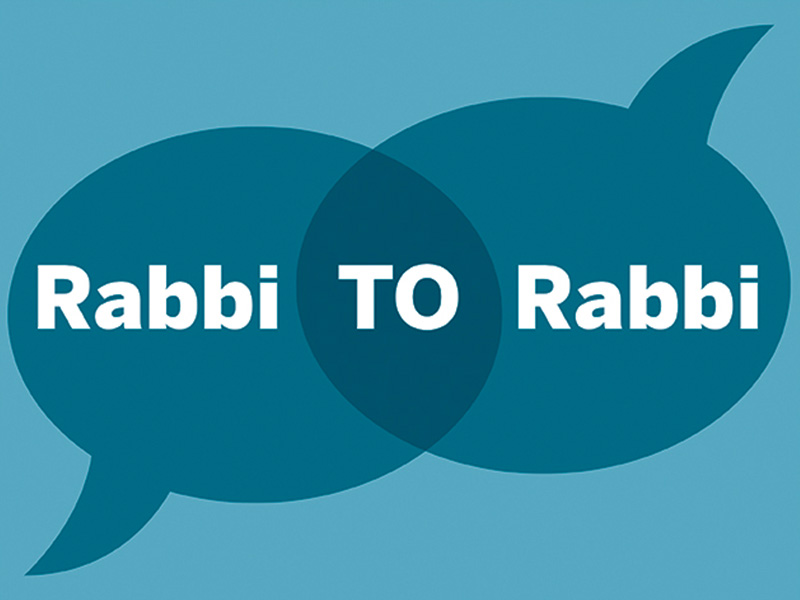The American presidential election contains a treasure trove of High Holiday themes, but some issues may not resonate in Canada, and alienating congregants is always a risk
Rabbi Adam Cutler
Beth Tzedec Congregation, Toronto
Rabbi Adam Scheier
Congregation Shaar Hashomayim, Montreal
Rabbi Scheier: It’s that time of year again, as we begin to prepare our High Holiday messages to our congregations.
Many of my rabbinic colleagues from the United States tell me that once every four years, the discussions surrounding the presidential elections dictate the sermon topics. (In the minds of many rabbis, this is a blessing, as the topic of the sermons arrives gift-wrapped!) That is, explicitly or by nuance, this year’s sermon topics might include trustworthiness, leadership qualities and responsibility, racist, sexism and many of the other fascinating topics that have become a central part of this year’s American presidential campaign.
However, I often struggle with the relatability of this approach to our Canadian identities. Do you think that congregants will come to our Canadian synagogues expecting to receive the spiritual tools to interpret the ubiquitous American political cacophony? Or should we focus on issues that are specific and uniquely relevant to our own selves and communities?
Rabbi Cutler: I often find myself personally reflecting on American sociopolitical phenomena. While some issues have Canadian resonance (such as Black Lives Matter) and others are more specifically American (gun control, Obamacare), I am leery of bringing any of them into my sermons and teachings.
While I may have opinions on the topics and might even have relevant Jewish texts worth sharing, commenting from the pulpit as a Canadian in Canada without having any skin in the game feels mostly inappropriate. Moreover, I believe these issues would not resonate deeply with my community because they do not directly affect their lives.
Nevertheless, some of the tropes of the American election – and American culture more generally – do seep into my sermons. A few weeks ago, almost inadvertently, while comparing a Jewish mission based on a return to the Garden of Eden to a forward looking coming-of-the-Messiah, I referenced Donald Trump’s campaign slogan of “Making America great again” as an example of a wishful return to a mythical, perhaps Edenic, past.
When, if ever, do you reference American politics? What role do politics play in your sermons?
Rabbi Scheier: I wholeheartedly agree that we must maintain our Canadian identity and not present the United States’ issues as our own. I am reminded of a humorous moment from my first year as a rabbi in Canada, having just moved here from the United States. On a November Shabbat morning, I announced that services would be later than usual the following Monday because of “Memorial Day.” More than a few congregants gently reminded me that Canada does not observe Memorial Day, just Remembrance Day.
Recently, I travelled to the American South for a family vacation, where I attended a synagogue program in which members of the congregation discussed race, racism and violence in their communities. While this issue is central to the political discourse, I try to present it detached from political implications. And, to answer your question, when I discuss American politics, I do so in the sense that it is a cultural obsession that has captured people’s attention. This is also the thinking that led my wife and I to dress up as Hillary and Donald for Purim this past year.
I believe we are blessed that, right now, our Canadian political reality is far removed from the drama and contentiousness of the United States. In what context, then, might you discuss Canadian political issues, which might not have the same level of excitement, but are far more relevant to our congregants?
Rabbi Cutler: There are at least two concerns when addressing political issues (and candidates) from the pulpit. The first is that, as charitable organizations, synagogues (in Canada and the United States) may not endorse a candidate, though that does not preclude a serious conversation on political issues (poverty reduction, education reform, etc.). The second is the fear of alienating congregants who may hold opposing viewpoints.
My rabbinic activism is usually tied into issues being addressed by national organizations such as the Centre for Israel and Jewish Affairs, on whose rabbinic cabinet I sit. Federal funding for refugee health care, for example, is an issue I took action on. More broadly, I hope that through my teaching, I can promote messages of civility, tolerance and engaged thoughtfulness.
